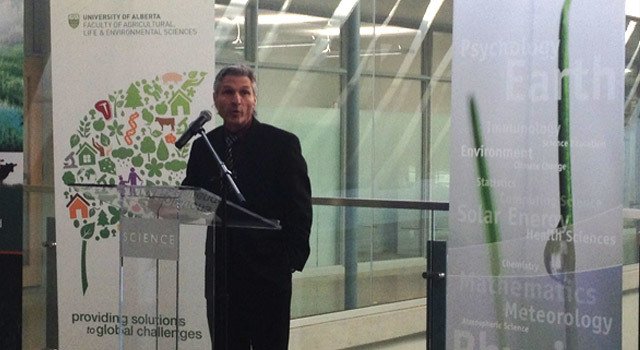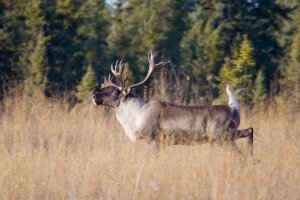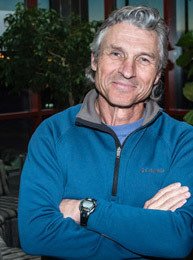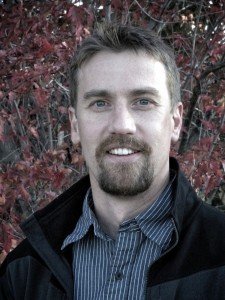The problems are clear. Due to human activity, Alberta faces a series of biodiversity-related challenges. We see declining caribou populations, fragmented landscapes, and increasing pressure on Alberta’s rare plants and animals. Finding solutions to these problems is part of the mandate of the newly minted Alberta Biodiversity Conservation (ABC) Chair program, launched at the University of Alberta on November 20, 2013.
“Both government and industry were concerned about a number of biodiversity challenges. They understand that their social license to operate on Alberta’s land base is dependent on meeting those challenges,” explains ABC Chair recipient (ABMI Science co-Director and University of Alberta Professor) Dr. Stan Boutin.
As a result, several partners – Canada’s Oils Sand Innovation Alliance, Alberta Innovates–Energy and Environment Solutions, Alberta Innovates–Bio Solutions, NSERC, and the University of Alberta Faculty of Science and Faculty of Agricultural, Life and Environmental Sciences – came together to provide over $4 million in funding to the Chair program over the next five years.
The goal? To understand and develop mitigation strategies for key biodiversity challenges related to energy industry activities in Alberta.
To this end, Boutin and fellow ABC Chair awardee Dr. Scott Nielsen (ABMI collaborator and University of Alberta professor) will pursue a number of research themes including, “cause and effect assessment of biodiversity changes as the foundation for effective management.”
This is where the ABMI’s work will be crucial. ABMI monitoring data can flag potential changes in patterns of biodiversity for particular areas. For example, in the surface mineable region of the Athabasca Oils Sands Area, ABMI data shows a correlation between an increase in energy infrastructure and decreases in species abundance for a range of species (see our upcoming report: The Status of Biodiversity in the Athabasca Oil Sands Area).
With this type of data in hand, “Scott and I will do the research to understand what the cause and effect is behind the patterns,” says Boutin. “The key will be to not stop there, but to actually move on to propose and test possible solutions.”
Regarding solutions, the additional themes of the Chair program are: rare and endangered species conservation; improving monitoring, modeling, and management of biodiversity for land use planning; and, integrated restoration: from site to landscape scales.
In Boutin’s case, his first project as ABC Chair will be to kick-start the caribou recovery planning process in Alberta, complete with a series of unconventional, innovative experiments designed to slow the decline of – perhaps even stabilize – caribou herds. Think a large-scale fence enclosure, which keeps wolves out of caribou territory and thereby slows caribou predation.
“It’s time to raise the profile of what we can do,” he says, “when we mesh quality information on biodiversity with an industry willing to try and figure out ways to mitigate the issues.”
Testing landscape-level solutions to biodiversity challenges, while tackling fundamental biodiversity conservation research questions will require significant research capacity. As ABC Chairs, both Boutin and Nielsen will spearhead the effort, through training and collaboration, to create a network of biodiversity conservations researchers throughout this province.
Boutin’s excitement for this prospect is clear. “The goal is to have a strong network of researchers tuned into the exciting research going on. And that network will be far broader than Scott and me.”
About the Biodiversity Conservation Chairs
Dr. Stan Boutin
Dr. Boutin is an ecologist and a professor in the Faculty of Science. He previously held an NSERC Industrial Chair in Integrated Landscape Management designed to help people make ecologically-informed land use decisions. His research interests include cumulative effects monitoring and management, forestry-wildlife interactions in the boreal forest and woodland caribou conservation.
Dr. Scott Nielsen
Dr. Nielsen is a conservation biologist and an associate professor in the Faculty of Agricultural, Life & Environmental Sciences. His lab, the Applied Conservation Ecology Lab, studies the conservation ecology of species to ecosystems with the goal of understanding the processes affecting their distribution, dynamics and interactions in order to inform biodiversity conservation.




